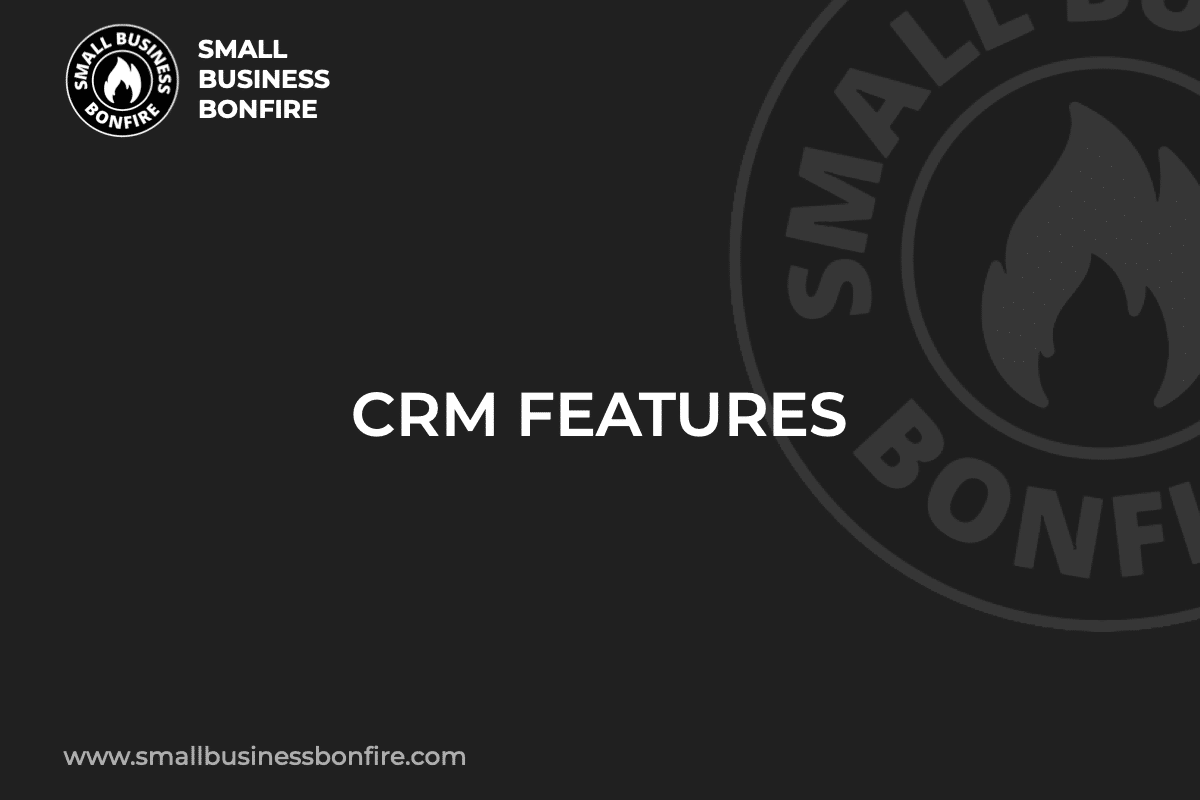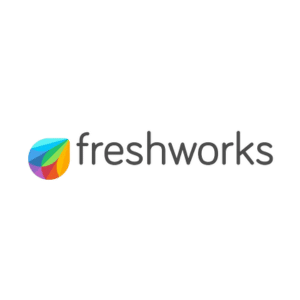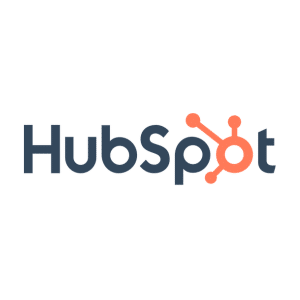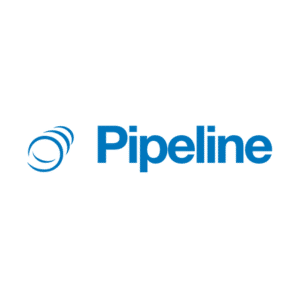Have you spent countless hours researching CRM systems only to find yourself overwhelmed by the long list of features each company offers?
If you don’t understand the differences between CRM features and which ones your business needs most, identifying the right software seems impossible.
Hi, I’m AJ! Over the last decade, I scaled and (recently) sold my business. I started Small Business Bonfire (SBB) to help other entrepreneurs grow their businesses and avoid all the mistakes I made.
Let’s dive into the CRM features your SMB should look for. Additionally, I’ll provide a few expert tips based on my experience using CRM software!
Key Takeaways
- Marketing CRM features help identify successful ad campaigns, collect valuable information, and target specific customer segments.
- CRM software organizes all the information related to each customer, allowing you to know your target audience well.
- CRM features like shared calendars and task reminders ensure everyone is on the same page.
- CRM software allows you to streamline and track the sales process, showing real-time data and improving conversion rates.
Related Reading: CRM for Small Businesses
SBB Featured Partners
What is a CRM (Customer Relationship Management)?
What is a CRM? A CRM (customer relationship management) is software designed to help businesses manage customer relationships.
CRMs allow companies to:
- Track sales
- Store contact information
- Develop more efficient processes for addressing customer needs
CRM software makes marketing campaigns more organized, workflow automation possible, and streamlines the sales process.
Some business owners initially think implementing a CRM tool wastes time and money.
However, CRM features make business tasks more efficient, boosting sales, decreasing employee workloads, and organizing data.
Basically, a CRM platform helps businesses maximize their resources and develop better strategies for engaging with customers.
Who Uses CRMs?
The great thing about CRM software is that almost every business department benefits from the technology.
Some business segments that use CRM in their daily routine include:
- Sales teams
- Customer service reps
- Recruiting teams
- Marketing agents
- Managers
A key CRM software feature is that it includes tools that help every company segment work efficiently. Therefore, everyone from sales representatives to customer service agents has access to the same data.
Another reason every employee uses a company’s CRM tool is because it streamlines communication.
Every CRM system makes company-wide communication more efficient and encourages collaboration and teamwork!
Top CRM Software Features for SMBs
What CRM features are available? And which does your business need?
I’ll review and explain my favorite CRM features I’ve personally utilized in my companies.
Remember, some features may not be helpful for your business, and that’s okay.
Implementing a CRM system that only includes the tools and technology your company needs is essential!
CRM Sales Features
The first group of CRM features I’ll dive into will impact a company’s sales process.
Each of these tools helps streamline the sales funnel, organize data for sales reps, and promote more sales!
Contact Management
Contact management software allows you to organize company customer data into groups, organizing the information and ensuring you cater to your customer base effectively.
As you can imagine, contact management is a CRM feature you have to have because it improves customer satisfaction.
For example, contact management software helps with the following things:
- Your company can gather and organize vital customer data
- You can cater to specific customer groups and offer promotions to these groups
- Marketing and sales teams can run more targeted campaigns
- You can personalize customer contacts, ensuring customers feel important
Trust me, if your CRM solution doesn’t have contact management software, you’re missing out on essential customer satisfaction tools!
Customer Opportunity Management
Customer opportunity management is simple; this tool helps CRM users identify customer segments most likely to convert to sales.
The main benefit of customer opportunity management is that it streamlines sales processes for sales and marketing teams.
In return, your company’s sales process is more efficient.
Pipeline Management
Pipeline management offers a closer look at your sales funnel, allowing you to see real-time updates about the stage your customers are at.
When you use pipeline management data correctly, you can do the following:
- Plan your next move to cater to the customer
- See weak spots throughout the entire sales pipeline
- Forecast revenue
- Analyze the performance of a particular sales rep
Regarding CRM features you must have and understand, pipeline management is near the top of the list!
Lead Management
A lead management feature is critical for CRM software.
Lead management tools help businesses decide which customers to follow up with based on demographic and psychographic factors.
The lead management process ensures your company is efficient and productive because it helps your sales team focus on the best leads.
Sales Reports & Dashboards
Sales reports and dashboards are one thing I always ensured my company’s CRM tool had.
These reports present company-wide statistics in a visually appealing and easy-to-understand way.
Additionally, CRM sales reports update essential information in real-time and ensure your team can access the data from various portals.
Employees may take a little time to become accustomed to the sales reports, but overall, they help make better data-driven decisions.
Sales Analytics
Sales analytics help your company’s sales performance greatly.
With these features, sales reps and marketing agents can create better ad campaigns by learning from previous ones.
Sales analytics collect data from sources like:
- Social media accounts
- Polls
- Website Traffic
Then, you and your team can analyze this organized data and see what’s working and what’s not.
Sales Force Automation
The list of best CRM features for sales wouldn’t be complete without sales force automation.
Sales force automation completes various tasks so your employees don’t have to. Some of these tasks include the following:
- Outgoing calls
- Follow-up campaigns
- Data organization
Automating routine tasks ensures your team has more time to focus on complex tasks, effectively streamlining the sales process.
Sales Forecasting
Sales forecasting allows you to create company benchmarks.
That way, you and your team can easily see whether or not your sales and marketing efforts meet expectations.
Personally, I’ve utilized sales forecasting data to determine the future direction of my sales team.
Email Client Integration
Email client integration and the contact management feature I mentioned work hand in hand when using CRM software.
This integration organizes customer email data and allows customer support agents to view their previous interactions and information.
As a result, your customer support team offers more personalized (and faster) care!
Inside Sales Console
The best CRM software programs have an inside sales console.
Inside sales console is a platform designed to increase sales performance by providing a clean user interface (UI).
Ensure your CRM program can optimize UI and data analytics to streamline and improve business performance and customer experience!
Sales-Focused CRM Example: Pipedrive
Pipedrive has several sales-focused CRM features, ensuring the entire sales process is efficient and streamlined.
Pipedrive’s tools allow you to do the following:
- Track leads
- Focus on sales opportunities
- Measure key performance indicators
- Streamline sales workflows
- Focus on the sales funnel
Pipedrive provides numerous automation to increase employee productivity. And the real-time reports ensure you know what to prioritize.
See our full Pipedrive review here.
CRM Marketing Features
Marketing tools are integral for company success. Fortunately, numerous CRM features target this exact need!
Let’s look at some of my favorite CRM marketing features that help with marketing.
Marketing Automation
Marketing automation is one of the basic CRM features that help companies immensely.
These automations help you efficiently and strategically target certain audiences most interested in what you’re selling.
Email Marketing
Email marketing is an efficient way to contact customers, promote company sales, and collect data.
Fortunately, if you have an email campaign service like MailChimp, CRM systems allow you to integrate the technology.
Regardless of what software you utilize for email marketing, it’s an excellent way to build a customer database.
Social Media Monitoring
CRM software with social media monitoring allows you to observe the following:
- How your company’s social media presence performs
- Customer engagement
- Successful marketing and ad campaigns
- Customer segments
Keeping an eye on your social media ensures your company’s presence is updated.
Social Media Posting
One CRM feature I always enjoyed was automated social media posting.
CRM software allows you to schedule social media posts on various platforms and collect the data in one place.
Having data from various platforms in a singular location simplifies data analysis!
Call Center Integration
Call center integration is one of the CRM features that improve customer satisfaction.
This feature allows businesses to control their call center from their CRM user interface. You can also integrate third-party apps into the platform.
Using fewer systems ensures everyone is on the same page, and there’s less confusion about where information is located.
Web Analytics Integration
A common misconception is that web analytics integrations only allow you to see who’s visiting your company website.
However, this is a core CRM feature that improves data-driven decisions.
Web analytics integration help with the following tasks:
- Using existing data to make future decisions
- Identifying problem areas
- Providing insights into how users interact with your site
Marketing-Focused CRM Example: HubSpot Marketing Hub
HubSpot CRM is one platform that has a separate service solely for marketing purposes. For example, some of the tools included in HubSpot’s marketing software include the following:
- Online form builder
- Live chat functionality
- Salesforce integration
- Marketing automation
- Campaign management
- Organized marketing analytics
- Dashboards and reporting features
- Advanced marketing reports
HubSpot’s marketing plan range from $0 to $3,600 monthly, depending on your needs.
Regardless of the plan, HubSpot CRM is designed to help your company find leads, automate tasks, measure success, and implement better marketing techniques.
See our full HubSpot Marketing Hub Review here.
CRM Customer Service Features
CRM features that focus on customer service improve a customer’s experience, help businesses use customer data effectively, and provide a more personalized shopping experience.
Here are my favorite customer service CRM features!
Ticket Management
Certain CRM software platforms can assist with ticket management.
A ticketing system collects customer requests and tracks each ticket cycle from start to finish.
A ticket management system collects and organizes all customer requests in one location.
Live Chat
A live chat CRM system allows you to have real-time conversations with your customers, leading to more sales.
Also, live chat CRM features usually allow you to save the chats so you can retrieve important information and improve customer service.
Some advanced CRM software programs allow companies to implement automated responses, saving time and streamlining customer inquiries.
General CRM Features
Every CRM system has general customer relationship management features that improve each customer’s experience.
For example, if you want to improve customer experiences, ensure your software has CRM features like:
- Targeted marketing campaigns
- Customer behavior analysis tools
- Data collection software
- Customer segmentation
- Customized emails and messages
The better you get to know your customer base, the stronger relationships your business can build (leading to more sales)!
Third-Party Integrations
Your company likely already uses customer service-oriented technology if you’ve been in business for several years.
Rather than transfer several years’ worth of data over, ensure your CRM software allows third-party integrations.
That way, your team doesn’t have to switch between numerous platforms because everything is in one place.
Customer Data
Every great CRM system has techniques to collect customer information.
Collecting customer data ensures your sales team can cater to your customer base, find leads, and identify sales trends with certain customer segments.
Customer information is one of the most essential CRM features because it increases your chances of making more sales.
Quote Management
Ensuring each sales rep has access to quote management tools saves time and helps your team close sales.
Quote management streamlines the quotation process by offering pre-designed templates.
That way, all a sales rep has to do is enter customer information and send it off!
It may seem simple, but quote management tools save a lot of time in the long run.
360 Degree Customer Profile
360-degree customer profiles refer to a company having a complete history of each person with their company.
As you can imagine, having this data is incredibly useful because you can see the following information:
- Customer history with the company
- Past purchases
- Inquiry/customer service history
These profiles help you build stronger customer relationships and target the right audience.
Billing and Invoicing
A CRM platform with billing and invoicing capabilities ensures better organization and purchase histories of every customer.
Similar to quote management I mentioned earlier, CRM features allow you to customize and build billing documents.
So when it’s time to request payment from a customer, your template is ready to go!
Also, billing and invoicing features organize every transaction based on customer data, ensuring you charge customers the correct amounts and send reminders for late payments.
Customer Service Focused CRM Example: Sugar Serve
Sugar Serve has an excellent CRM platform for all your customer service needs.
With Sugar Serve, you can enjoy the following:
- Better organized client data
- Efficient customer service agents
- Reduced service costs
- Improved customer satisfaction
- Real-time customer insights
Sugar Serve’s customer service CRM features stand out from others in the industry because they streamline and differentiate every user experience.
CRM Project Management Features
Lastly, I’ll review why your CRM system must have certain project management features. In addition, I’ve included my favorite software for project management-related CRM features.
Let’s take a look!
Shared Calendar
Shared calendars make life simpler for you and your team, especially if your company is scaling quickly.
Some of the benefits of having a shared calendar include the following:
- You can access them from multiple platforms
- They’re customizable
- As a boss, you can have multiple shared calendars with different employee groups/teams
- They ensure tasks are balanced across various departments
- Allows you and your team to have a clear picture of short and long-term goals
- Everyone is on the same page
CRM tools like shared calendars help everyone stay organized and have a clear picture of ongoing projects, meetings, and upcoming events.
Task Management
Task management features are things most CRM platforms have.
These features allow you to do the following tasks:
- Create billing and payment reminders
- Create tasks for yourself
- Assign tasks to team members
- Send team members reminders
- Set up recurring tasks (weekly meetings, report due dates, etc.)
An efficient CRM system allows your task management data to sync with your calendar. That way, you can see when projects are due, meeting times, etc.
You can use task management tools for a large-scale project or to ensure routine tasks are completed (or both).
Remote Data Access
Remote data access ensures you have access to your CRM data through a network connection.
Having remote access means you can view customer, project, and sales data from anywhere.
So if you’re out of the office and need to view certain information, cloud-based CRM software gives you access to important information.
Mobile CRM
Utilizing smartphones is another way to ensure CRM features work for your business.
Mobile CRM programs and apps ensure you and your team can access data and retrieve important alerts about projects in real time.
Mobile CRM features allow you to stay on top of everything regardless of whether you’re in the office.
This CRM feature is especially helpful for industries that have an office and off-site projects, like construction companies.
Role-Based Views
A role-based view feature allows you to restrict what certain employees can see and access based on their position in the company.
That way, you can control and track what certain employees see within your CRM software.
Implementing a role-based view feature doesn’t mean you lack trust in your employees.
Instead, this feature prevents data leaks and security breaches, two things that can drastically impact your company.
Also, role-based view features ensure employees aren’t overwhelmed by features and tools they’ll never need.
When employees can only see and access the tools they need to perform their job, they can learn CRM quicker and be more productive.
Project Management-Focused CRM Example: Monday Projects
Monday’s project management-focused CRM software is easy to use, has a great user interface, and includes all the features I previously mentioned.
Monday simplifies planning, managing, and collaborating on projects and portfolios in one location.
Some of the tools Monday project management CRM software include the following:
- Workflow visualization tools (over ten views to choose from)
- Dashboards with real-time updates
- Custom workflows
- Workflow automation
- Third-party integrations and add-ons (Dropbox, Gmail, Trello, etc.)
I’ve used Monday’s CRM software for small and large projects. The CRM features allowed me to set goals, see everyone’s progress and ensure we met goals at the scheduled time.
Monday also helped my employees have a clear picture of their role in the project. There wasn’t confusion about task responsibility or what stage the team was currently at.
See our Full Monday Projects Review here.
Wrapping Things Up
CRM features will streamline the sales cycle and collect valuable information to grow your business. By identifying your company’s goals and weak points, you can choose software with CRM features to help.
Remember, you may not need each of the CRM features I listed in this article. The best CRM software for your company has the tools you need to become more efficient.
What are your favorite CRM features? Let us know in the comments section!
Good luck finding the best CRM for you and your company!
Newsletter Signup
Join The Leads Field Guide Newsletter for tips, strategies and (free) resources for growing your leads, and closing more deals.




